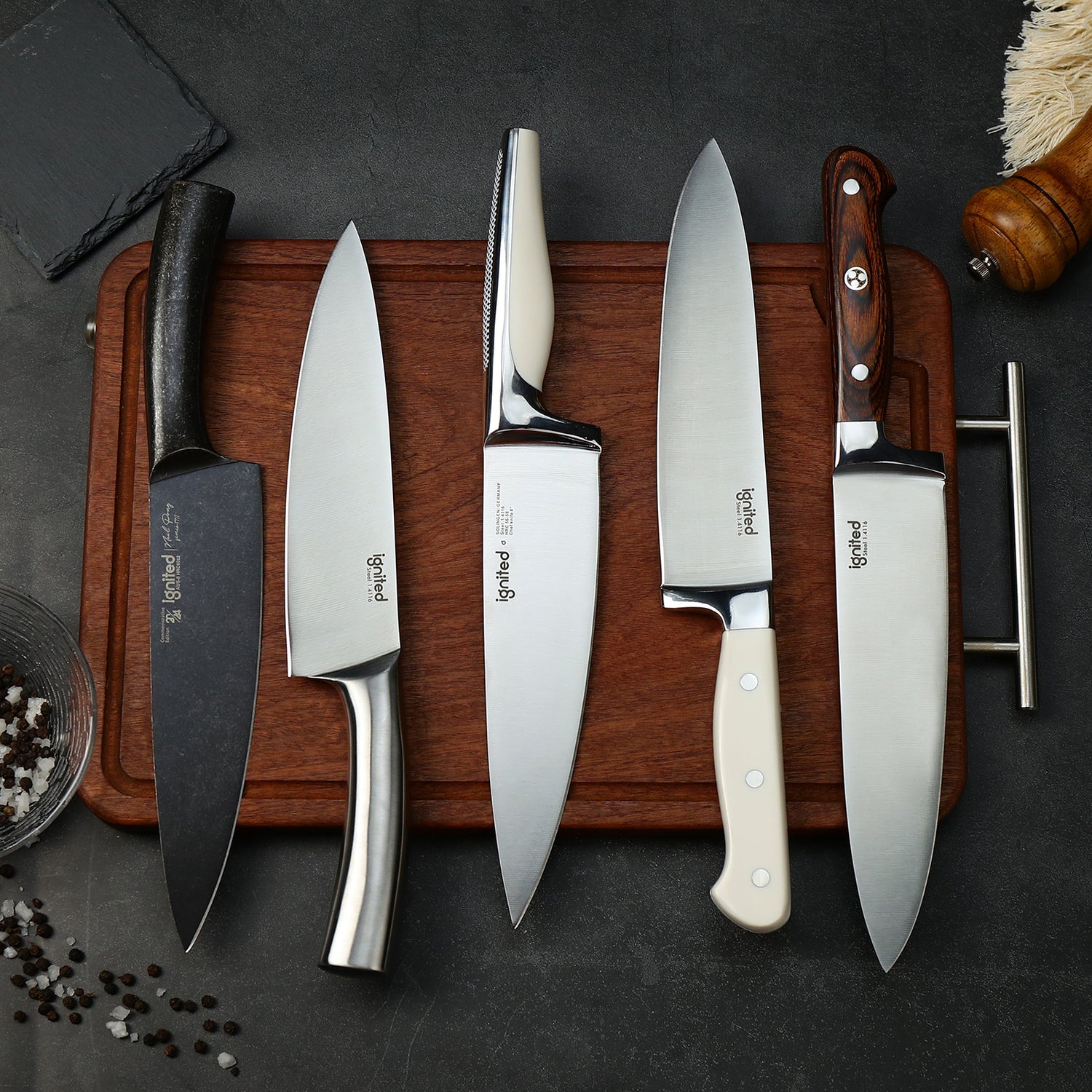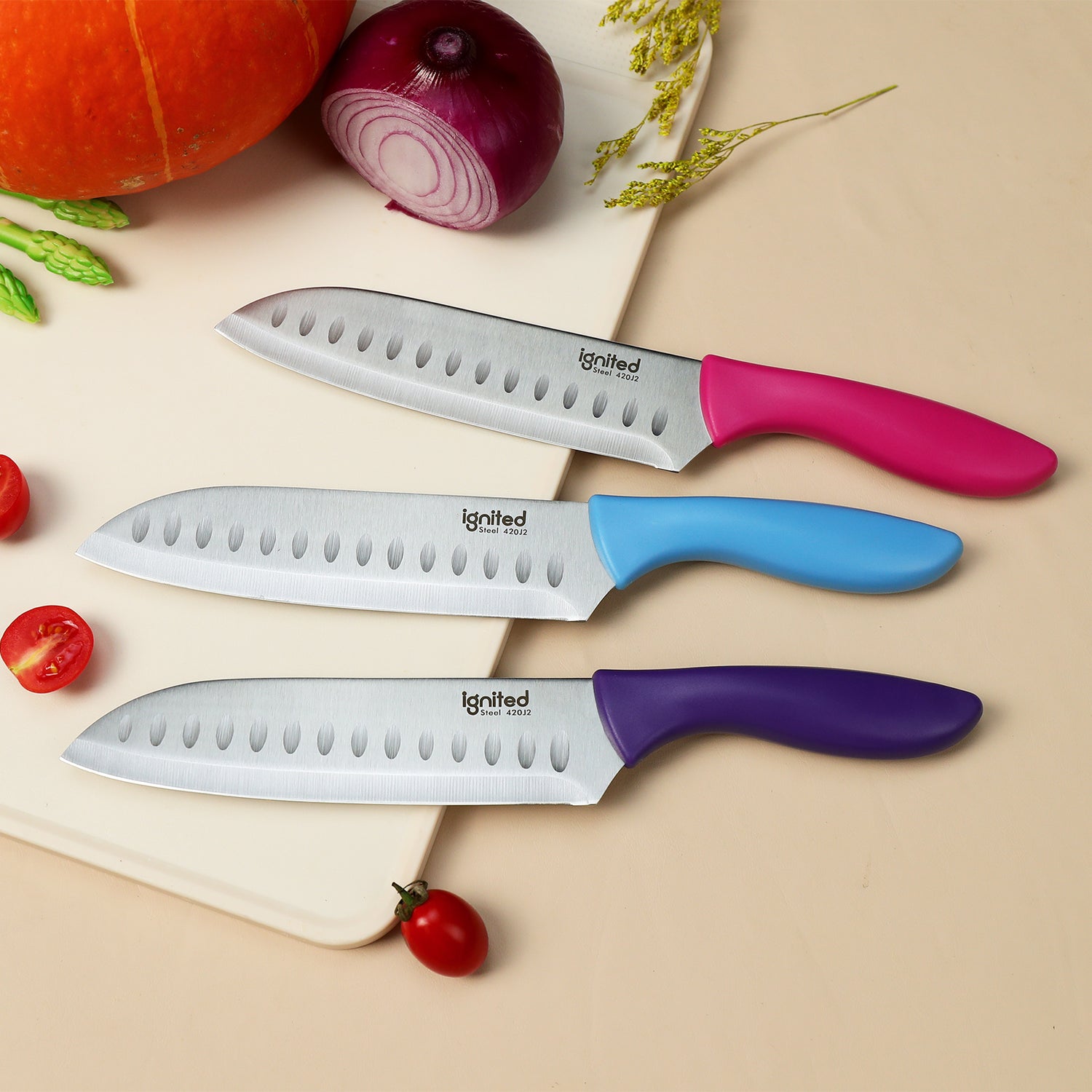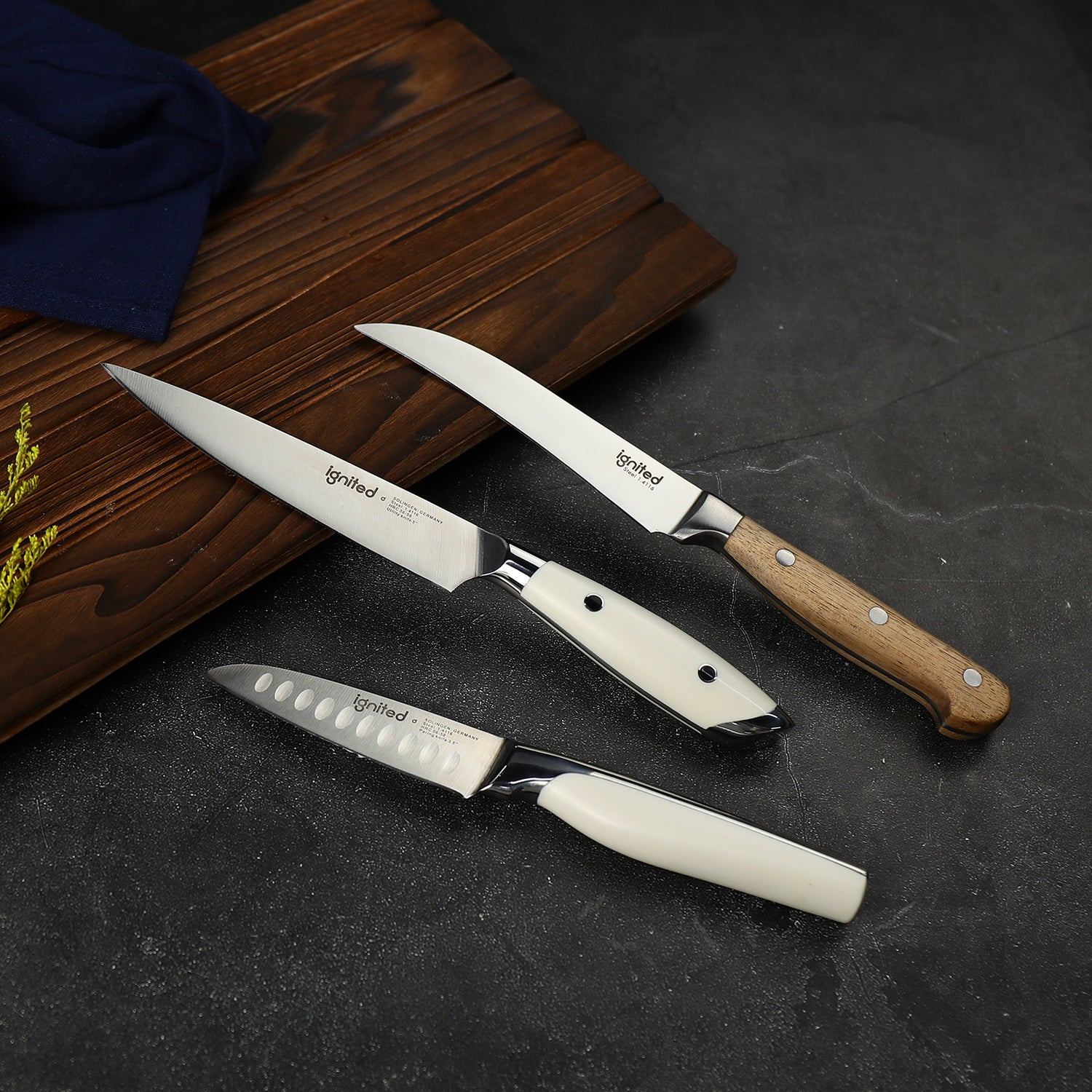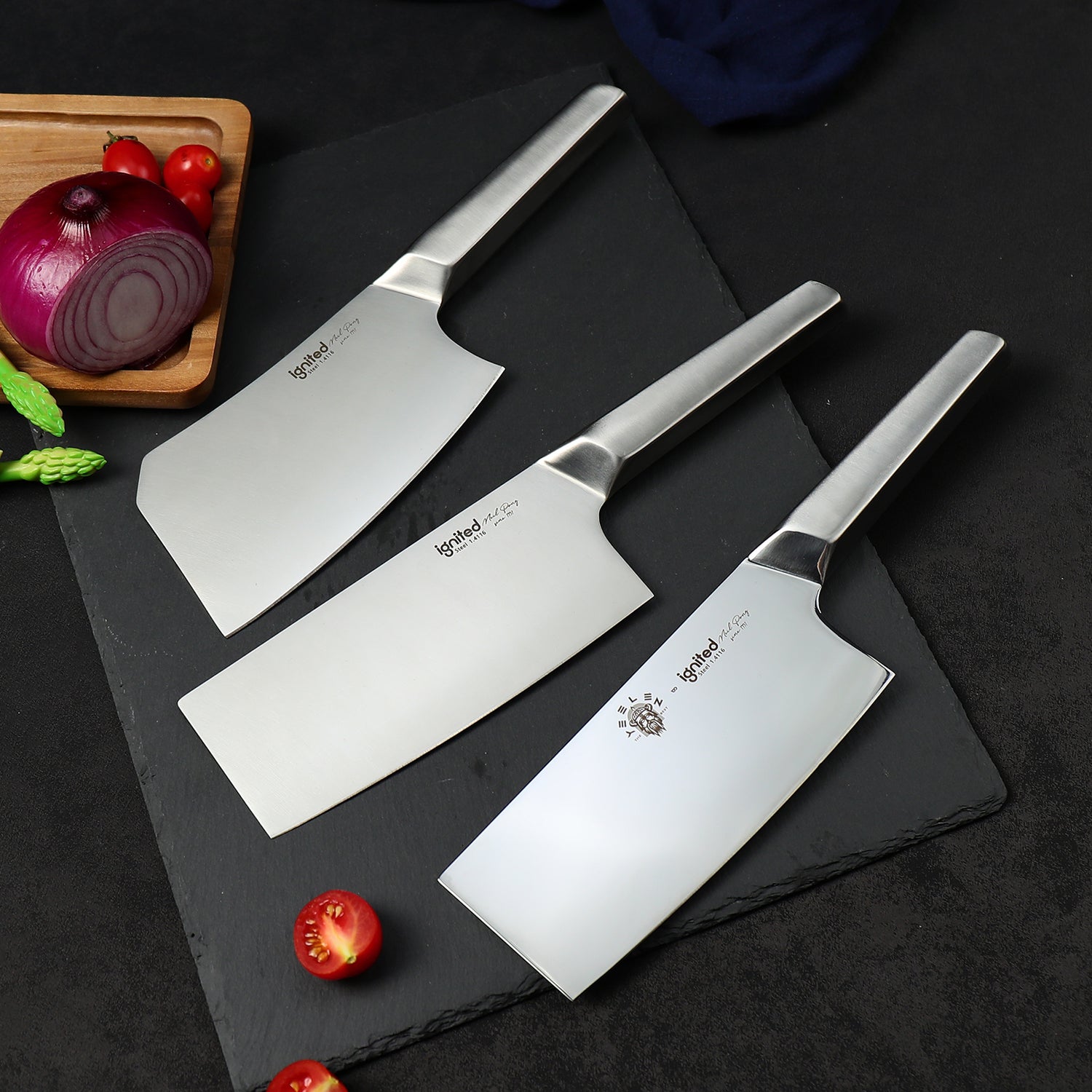The Role of Weight in Chef Knives
Why Weight Matters: Weight impacts how a knife handles during long prep sessions and affects fatigue, precision, and speed. A heavier knife adds cutting force, while a lighter one offers more control.
The Balance Factor: Balance refers to the distribution of weight between the blade and handle. A well-balanced knife enhances comfort and reduces the risk of injury.
What Is the Ideal Weight for a Chef Knife?
Typical Weight Ranges: Most 8-inch chef knives weigh between 170g and 250g (6–9 oz).
Preferences by User Type: Professional chefs may prefer slightly heavier knives for fast, powerful cuts, while home cooks may lean toward medium or lighter weights for daily tasks.
Personal Preference: Ultimately, the ideal weight is subjective and based on the user's comfort, cooking style, and experience.
How Weight and Balance Affect Knife Performance
Blade-Heavy: Offers more momentum but may strain the wrist.
Handle-Heavy: Offers control but may feel off-balance when slicing.
Even Balance: Ideal for most chefs—promotes comfort and precision.
The Pinch Grip and Balance Point: The pinch grip is used to find a knife's true balance, usually located just ahead of the bolster.
Factors Influencing the Ideal Knife Weight
- 1. Hand Size and Strength: Larger, stronger hands may prefer heavier knives.
- 2. Cooking Style and Frequency: Daily use may require lighter knives for reduced fatigue.
- 3. Blade Length and Thickness: Longer and thicker blades are naturally heavier.
- 4. Handle and Blade Materials: Dense woods and full-tang steel handles add weight.
- 5. Knife Construction: Forged knives are usually heavier than stamped knives.
How to Choose the Right Chef Knife Weight for You
- Step 1: Try different knife weights in-store or from a friend.
- Step 2: Reflect on how often and what you cook.
- Step 3: Ensure the knife feels balanced in your pinch grip.
- Step 4: Consider how easy the knife is to maintain and sharpen.
Exploring Knife Weight Through Different Cuisines
Western chef knives (e.g., German) are heavier, designed for robust tasks. Eastern knives (e.g., Japanese Gyuto) are lighter, suitable for precision slicing. These differences reflect cultural cooking techniques and preferences.
Ergonomics: Reducing Fatigue and Improving Comfort
Handle shape, contouring, and weight distribution all influence fatigue. Ergonomic handles and evenly balanced knives support extended use without strain.
Chef Knife Weight and Cutting Techniques
- Chopping: Heavier knives help with downward force.
- Slicing: Medium-weight knives offer control and smoothness.
- Rocking: Balanced knives are best for this motion.
- Push Cutting: Lighter knives work well with precision cuts.
Caring for Your Chef Knife: Weight and Maintenance
Heavier knives may dull faster due to repeated hard contact. Maintain edge sharpness with regular honing and protect the knife during storage to preserve performance.
Chef Testimonials: Real-World Experiences
Many chefs report that a well-balanced 200g knife offers a sweet spot for both home and professional use, offering enough heft for power and enough agility for precision.
The Science of Knife Weight: Materials and Technology
Steel type, tang design, and handle materials affect weight. Innovations like lightweight carbon fiber handles or tapered blades help optimize performance while reducing fatigue.
The Psychological Impact of Knife Weight
Feeling confident with a knife often correlates with how natural it feels. A knife that is too heavy or light can undermine control and increase fatigue.
Frequently Asked Questions (FAQ)
1. What is the average weight of an 8-inch chef knife?
Approximately 180g to 220g (6.3 to 7.8 oz).
2. Is a heavier chef knife better for cutting meat?
It can help with momentum, but it may also tire the user more quickly. Balance is key.
3. Are lighter chef knives safer to use?
Yes, in terms of control and maneuverability, but they may require more effort to cut dense foods.
4. How does knife balance affect performance?
Good balance ensures comfortable use and more efficient cutting motion.
5. What should I consider besides weight when choosing a chef knife?
Handle comfort, blade material, tang design, and how the knife feels in your grip.




